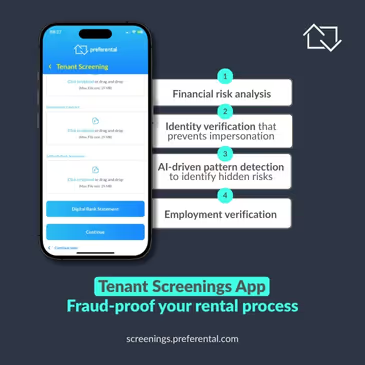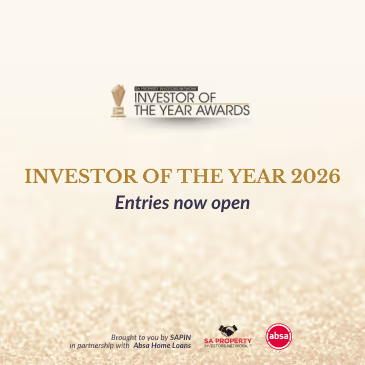The future has arrived: How Technology is redefining real estate
The pace of technological change in the property industry has never been faster. From Artificial Intelligence (AI) and virtual tours to blockchain and digital transactions, real estate is entering an era where innovation is not just an advantage, it is a necessity.
The property sector has long been viewed as traditional and relationship-driven, but the tide has turned. Technology is now reshaping how properties are marketed, bought, sold, financed and managed, and those who fail to adapt risk being left behind.
Virtual & Augmented Reality: Reinventing the Buyer Experience
Among the most exciting developments in property marketing are Virtual Reality (VR) and Augmented Reality (AR). Virtual tours have already changed how buyers explore homes. Instead of physically visiting multiple properties, they can now experience realistic, immersive walkthroughs from the comfort of their own living rooms.
This has made property viewing more efficient, especially for time-constrained or remote buyers, and it has opened up opportunities for international investors and semigrants moving between provinces.
The global VR property-tour market is expected to reach 80 billion dollars by 2025, with more than 1.4 million real estate professionals already using the technology. For South Africa, this presents an extraordinary opportunity to attract buyers across borders and showcase high-value properties to those who may not be able to attend in-person viewings.
AR technology takes the experience further. It allows users to see how a property could look with different furniture, finishes or layouts, creating an emotional connection that static photos simply cannot achieve. Research indicates that properties marketed with AR content can receive more than four times the number of buyer enquiries and sell up to 75 percent faster.
“This technology helps buyers visualise their future lifestyle,” says Antonie Goosen. “They are not just looking at a house, they are imagining a home.”
Blockchain & Tokenisation: A New Digital Asset Class
While VR and AR are transforming the marketing front, blockchain technology is redefining how property ownership and investment are structured. Through tokenisation, a physical property can be divided into digital shares that investors can buy and sell, much like trading stocks.
“This creates liquidity in what has traditionally been an illiquid asset class,” explains Goosen. “It makes it possible for smaller investors to participate in the property market, reduces transaction costs and improves transparency through the use of smart contracts.” Analysts predict that tokenised real estate could account for as much as 15 percent of global property transactions by 2030, representing a three trillion dollar market.
Although tokenisation has yet to become a reality in South Africa, it is widely expected to follow international adoption trends.
“The technology already exists,” says Goosen. “The question now is when the regulatory and financial environment will catch up. Once it does, tokenisation could fundamentally change how we think about property ownership and investment.”
PropTech Momentum and the Post-Covid Shift
The Covid-19 pandemic served as a catalyst for rapid digital transformation. Estate agencies that once relied on face-to-face meetings and printed marketing materials have embraced digital tools to remain competitive.
Virtual tours, online valuations, electronic signatures and automated marketing platforms are now standard practice in many agencies.
“Some reports suggest that virtual-tour adoption in the property sector has increased by nearly 200 percent in just a few years,” says Goosen. “That is remarkable for an industry that has traditionally resisted change. Today’s buyers expect instant access to information, seamless communication and digital convenience. Agencies that fail to deliver that will quickly lose relevance.”
He adds that technology is not only enhancing efficiency but also improving client experience.
“The agencies of the future will be leaner, smarter and more client-focused. They will use data and automation to understand what buyers and sellers want, and then deliver it faster and more effectively.”
Fractional Ownership: Making Holiday Homes Accessible
Another emerging trend that reflects the global shift towards digital democratisation is fractional ownership. This model allows multiple buyers to co-own a holiday property, sharing both costs and usage. It provides access to premium properties that might otherwise be out of reach for individual buyers, while also ensuring that luxury homes are utilised rather than standing empty for most of the year.
“Fractional ownership platforms are growing rapidly across the world,” says Goosen. “It is a smart and sustainable way to unlock value in the leisure property market. As South Africans become more comfortable with shared-economy models, we can expect to see increased interest in co-ownership opportunities.”
Artificial Intelligence: The Agent’s New Co-Pilot
Artificial Intelligence is arguably the most transformative force shaping the future of real estate. AI tools can analyse buyer behaviour, generate video content, automate listings, and even qualify leads through natural-language chat. They can also provide predictive insights, identifying which properties are most likely to sell or which clients are most likely to list.
“AI will soon be the invisible co-pilot inside every successful agency,” Goosen says. “It will handle repetitive tasks like data entry, marketing scheduling and lead follow-ups, allowing agents to spend more time on what truly matters, building relationships and closing deals.”
He believes that AI will not replace agents, but rather empower them.
“Technology should enhance human potential, not replace it. The agents who thrive will be those who learn to use AI as a tool to increase their efficiency and deliver a more personalised service.”
Balancing Digital Efficiency with the Human Touch
Despite the rise of digital tools, Goosen insists that real estate remains a people business. “At Meridian Realty, we believe in using technology to enhance relationships, not to replace them. A computer can process data, but it cannot understand human emotion. Buying or selling a home is one of the most personal experiences in a person’s life, and trust is still built through genuine human interaction.”
Looking ahead, Goosen says the future of real estate belongs to those who embrace both technology and humanity. “The agencies that will succeed are those that combine data-driven efficiency with empathy, communication and personal service. The future is not something we are waiting for, it is already here, and it is reshaping our industry in extraordinary ways.”
Antonie Goosen is the Principal and Founder of Meridian Realty













.avif)


.avif)

.avif)




.svg)





























.avif)
